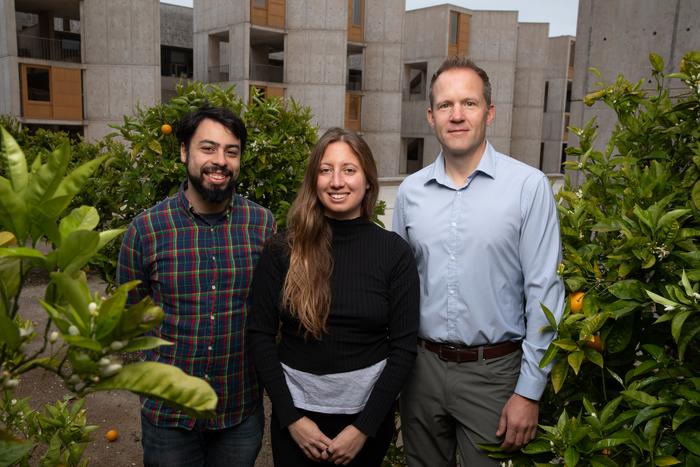Phytobiomes Journal Releases Groundbreaking Focus Issue on the Phytovirome
Phytovirome research has made tremendous strides in recent years, culminating in the launch of a special Focus Issue dedicated to this pivotal subject in the esteemed Phytobiomes Journal. This issue explores the tremendous diversity, multifaceted interactions, and consequential impacts that plant-associated viruses wield within phytobiomes, which consist of the various organisms and environmental factors interacting […]


Phytovirome research has made tremendous strides in recent years, culminating in the launch of a special Focus Issue dedicated to this pivotal subject in the esteemed Phytobiomes Journal. This issue explores the tremendous diversity, multifaceted interactions, and consequential impacts that plant-associated viruses wield within phytobiomes, which consist of the various organisms and environmental factors interacting with plants. The publication of this issue highlights significant advancements in understanding these intricate viral communities and their role in both promoting plant health and contributing to plant diseases.
Under the expert guidance of Guest Editors Poliane Alfenas-Zerbini, Joanne B. Emerson, Sebastien Massart, Kerry E. Mauck, Shahideh Nouri, and Anna E. Whitfield, this Focus Issue aggregates 11 ground-breaking articles. These works embody a balanced blend of fundamental research and translational findings, addressing crucial aspects of phytovirome science. Topics are far-reaching, covering areas like viral community ecology, the mechanisms of virus transmission between different plant hosts, insect-specific viruses, and the innovative application of bacteriophages for biocontrol purposes. Moreover, several articles delve into the discovery of previously unidentified viruses and those that affect novel host plants.
One of the most critical themes permeating the articles is the transformative impact of high-throughput sequencing (HTS) technologies on the study of plant-associated viruses. Advances in sequencing technology have facilitated the unprecedented discovery of diverse viral species in a range of plants, both wild and cultivated. These findings challenge previous paradigms and reveal the existence of substantial viral diversity, encompassing not just plant and fungal viruses but also bacteriophages and various viral entities within the broader context of phytobiomes.
The relationship between plant-associated viruses and their hosts is typically multifaceted, where some viruses can act as pathogens, leading to decreased plant vigor and productivity, while others may produce beneficial effects. For example, symbiotic relationships have been observed where viruses may enhance disease resistance or yield in certain crops. This duality emphasizes not only the importance of the phytovirome in plant health but also underscores the necessity for further research into the implications of viral communities in agricultural settings.
Another vital area discussed in the Focus Issue is the eco-evolutionary dynamics of these viral communities. Research suggests that the composition of viral populations can shift dramatically based on environmental factors, host plant diversity, and agricultural practices. For example, certain farming techniques, such as monoculture cropping, can exacerbate viral disease prevalence. These findings lead to significant implications for agricultural management and highlight the necessity for incorporating phytovirome considerations into the design of sustainable farming systems.
The contributions presented in this Focus Issue collectively advocate for the development of innovative strategies to manage plant-pathogenic viruses effectively. Utilizing the knowledge gained from understanding viral communities can lead to novel biocontrol methods that harness beneficial viruses to improve plant health. The potential application of biocontrol strategies using bacteriophages represents a particularly promising avenue, offering an alternative to chemical treatments that can be harmful to agricultural ecosystems.
HTS technology plays a crucial role not only in identifying viral species but also in understanding their transmission pathways. Detailed studies focusing on how viruses spread from plants to their insect vectors bolster our understanding of their lifecycle and ecology. Furthermore, this has implications for managing vectors and controlling viral spread in crops, highlighting another critical intersection between virology and practical agriculture.
The editors and contributors to this Focus Issue outline a clear and compelling vision for the future of phytovirome research. They emphasize the importance of fostering transdisciplinary collaborations across microbiology, plant pathology, virology, ecology, entomology, and other relevant fields. Such collaborative efforts can bridge the gap between fundamental science and real-world applications, ultimately working toward solutions that enhance sustainable agriculture practices.
As this special Focus Issue emphasizes, the field of phytovirome research is still in its nascent stages, with vast opportunities for exploration and discovery. The richness of the topics addressed and the innovative nature of the research presented challenge scientists and agricultural professionals to rethink traditional methods of crop management. By incorporating insights from phytovirome studies, researchers can open new pathways for addressing the challenges posed by crop diseases and maximize agricultural productivity in a rapidly changing environment.
In closing, the publication of this special Focus Issue represents a watershed moment in phytovirome research, showcasing groundbreaking discoveries that have far-reaching implications for both science and agriculture. The articles serve as a potent reminder of the elegance and complexity of viral communities in phytobiomes, setting the stage for further advancements in our understanding of plant-viral interactions.
Researchers and agricultural professionals are strongly encouraged to delve into the articles presented in this Focus Issue. By accessing these insights, stakeholders can better position themselves to employ innovative strategies for virus management and plant improvement. Overall, the future of phytovirome research appears bright, promising exciting developments that could significantly enhance our ability to cultivate healthier and more productive crops.
This comprehensive exploration of the phytovirome signifies a broader epiphany in the biological sciences—our understanding of plant health and productivity must align with the intricate networks of microorganisms and viruses that interact within ecosystems. The Future of agriculture will depend on how well we integrate these discoveries into our sustainable practices.
The exciting developments explored in this Focus Issue underscore the urgency of addressing plant diseases holistically, incorporating the roles of various viral species and their interactions with host plants and pests. As researchers continue to unravel the complexities of these relationships, we anticipate more groundbreaking discoveries that may redefine agricultural practices and enhance food security worldwide.
Subject of Research: The Phytovirome and its impact on plant-associated viruses
Article Title: Special Focus Issue on the Phytovirome
News Publication Date: October 2023
Web References:
References:
Image Credits:
Keywords: Phytobiomes, Phytovirome, viral ecology, agricultural productivity, high-throughput sequencing, biocontrol, plant health, sustainable agriculture.
Tags: advancements in phytovirome sciencebacteriophages for biocontrolhigh-throughput sequencing in plant scienceinsect-specific virusesnovel host plant virusesphytobiomes interactionsphytovirome researchplant health and diseasesplant-associated virusesspecial focus issue on phytoviromeviral community ecologyvirus transmission mechanisms
What's Your Reaction?


































